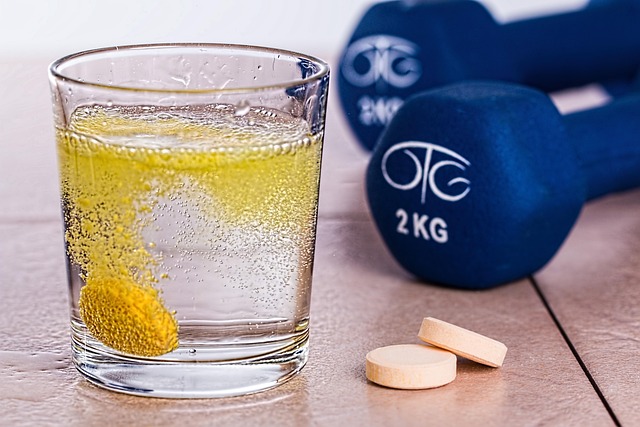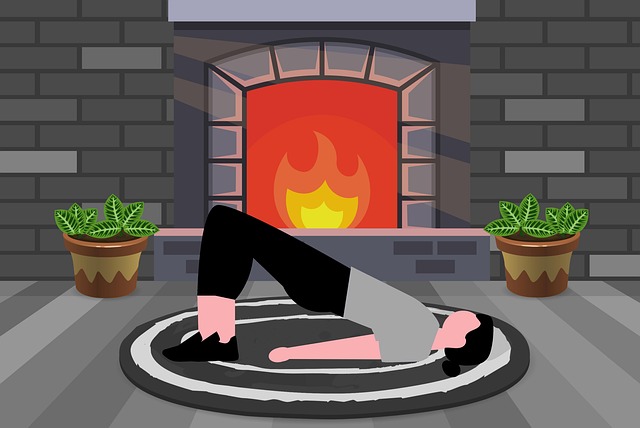Regular physical activity outdoors significantly improves mental health by reducing anxiety, depression and stress, boosting serotonin levels, and encouraging social interaction. It promotes cognitive function, creativity, focus, memory, and problem-solving skills, while also enhancing physical well-being through improved cardiovascular health, vitamin D levels, lung capacity, energy, sleep quality, and overall emotional regulation. Outdoor exercise, such as hiking or cycling, is a game-changer for maintaining optimal mental and physical health.
Outdoor activities are not just enjoyable; they’re essential for boosting mood and promoting long-term health. In today’s fast-paced world, connecting with nature offers a powerful antidote to stress and anxiety. This article explores the profound impact of outdoor experiences on mental and physical well-being. From hiking and cycling to team sports, discover how regular physical activity in natural settings can enhance cardiovascular health, strengthen muscles, and foster social connections while profoundly improving your overall mood and quality of life.
- The Impact of Outdoor Activities on Mental Health
- – Exploring nature's therapeutic effects
- – How fresh air and sunlight influence mood
- Physical Benefits of Regular Outdoor Exercise
The Impact of Outdoor Activities on Mental Health

Regular physical activity outdoors has been shown to significantly improve mental health and overall well-being. Spending time in nature, whether it’s a walk in the park, hike in the woods, or simply sitting by a body of water, can reduce symptoms of anxiety, depression, and stress. Research indicates that natural environments stimulate the release of serotonin, often referred to as the ‘feel-good’ hormone, which can elevate mood and promote relaxation. Additionally, engaging in outdoor activities encourages social interaction, whether it’s joining a local hiking group or simply sharing a moment with a friend in the park, further enhancing mental health benefits.
The benefits extend beyond mood enhancement; regular physical activity outdoors boosts cognitive function and creativity. Studies have found that exposure to natural light and green spaces can improve focus, memory, and problem-solving skills. Moreover, being active outdoors can foster a sense of accomplishment, boost self-esteem, and provide a much-needed respite from the pressures and stimuli of modern life. This connection between outdoor activities and mental health is becoming increasingly recognized, leading to the promotion of ‘nature therapy’ as a complementary approach to traditional mental health care.
– Exploring nature's therapeutic effects

Spending time in nature has been shown to have a profound impact on our mental and physical well-being. The simple act of being outdoors can significantly boost mood, reduce stress, and improve overall health. Exploring natural environments offers a unique form of therapy that is easily accessible to most people. Regular physical activity in these settings combines the benefits of exercise with the calming effects of nature, creating a powerful combination for enhancing mental resilience and promoting a sense of tranquility.
Whether it’s hiking through forests, strolling along beaches, or simply sitting in a park, connecting with nature allows us to disconnect from daily stressors. This reintegration with the natural world can foster a sense of grounding and perspective, leading to improved emotional regulation and reduced symptoms of anxiety and depression. Additionally, exposure to natural light and fresh air contributes to higher energy levels and better sleep quality, all essential components of a healthy lifestyle.
– How fresh air and sunlight influence mood

Fresh air and sunlight play a significant role in enhancing our mood and overall well-being. Being outdoors allows us to breathe in clean air, which is essential for our physical health but also has a profound impact on mental state. Research suggests that regular exposure to natural environments can reduce symptoms of depression and anxiety by promoting the release of serotonin, often referred to as the ‘feel-good’ hormone. The simple act of engaging in outdoor activities, such as taking a walk or practicing yoga in a park, can instantly lift one’s spirit and create a sense of calmness.
Moreover, sunlight is a powerful natural antidote to Seasonal Affective Disorder (SAD), a type of depression related to changes in seasons. It helps regulate our body’s internal clock and stimulates the production of vitamin D, which is crucial for maintaining strong bones and supporting various bodily functions. Incorporating regular physical activity outdoors can thus be a game-changer for mental health, offering a simple yet effective way to boost energy levels and combat stress.
Physical Benefits of Regular Outdoor Exercise

Regular physical activity in outdoor environments offers a multitude of benefits for both physical and mental health. Beyond burning calories and building muscle, outdoor exercises like hiking, cycling, or even a brisk walk can improve cardiovascular health by lowering blood pressure and enhancing circulation. The natural setting also has a positive impact on mood, reducing symptoms of depression and anxiety. Sunlight exposure during these activities increases vitamin D levels, which is essential for bone health and immune function. Moreover, being outdoors encourages deeper breathing, providing an instant stress relief and improving lung capacity over time. This combination of physical and mental benefits makes regular outdoor exercise a game-changer in maintaining overall well-being.
Immerse yourself in nature and reap the rewarding benefits for your mental and physical health. Regular outdoor activities, combined with fresh air and sunlight, offer a powerful remedy for boosting mood and promoting overall well-being. Incorporating these natural remedies into your routine can be an effective step towards enhancing your quality of life. So, get outside, embrace the outdoors, and let the therapeutic effects of nature work their magic.
